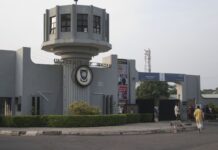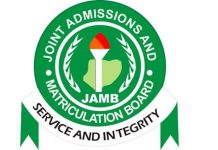Oluwadele Bolutife
There is a wide disparity between what is said behind closed doors and in the public arena, regarding the ignominious roles of our lawmakers in the ‘new’ dispensation. But first, let us take some historical voyage to see whether we may find some reasons to ‘understand’ the current situation.
At Independence, Nigeria practiced a parliamentary system of government, which is a composite of legislative and executive functions in the ruling political parties. The prime minister and other ministers both performed the functions of legislating and implementing government policies as executive members. Even the opposition party also had its shadow cabinet that researched and observed issues in particular ministries or departments of government, on the basis of which it offered support or constructive criticisms to the substantive ministers of heads of the government departments. Of course, the legislature had the powers of checks and balances and could pass votes of no confidence in underperforming ministers or even the prime minister. As at then, taking a cue from colonialist model (I detest the phrase ‘colonial masters’), there was a ceremonial president, which itself was a mere symbol of constitutional monarchy. Late Nnamdi Azikiwe was thus the ceremonial president at independence, due to the power-sharing coalition between the Northern People’s Congress (NPC) and the National Council of Nigeria and the Cameroons (NCNC), which was later changed to National Council of Nigerian Citizens.
In 1963, we became a republic, which further strengthened the regions of the country for self-development and some measure of decentralisation. The parliamentary system was still upheld at this point in time.
Then 1966 came, and the course of the country’s history was revised for the worst. Following the tradition of the military or some sectional and individual ambitions, or both, the Constitution was changed from a federal to unitary grundnorm. The regions were collapsed, and much later the ‘balkanisation’ of the country began. It was during Gowon’t time in office, as one of the eventual ‘beneficiaries’ of the 1966 coups, that the country gradually became divided into twelve states, with the number ultimately becoming 37 subnational units, of 36 States and the Federal Capital Territory (FCT), Abuja.
In 1979, the second ‘republic’ was ushered in, and the military decided to move in the direction of the presidential system of government to imitate the United States of America (the self-acclaimed custodian of modern democracy). The new arrangement was not based on the distinctive three arms of government, comprising the executive, legislature, and the judiciary. Although the ruling party formed the core of the executive branch with the president at the apex of its organogram, all the other parties participated in the legislative arm, on the basis of the strength of their elected members. One of the reasons canvassed for the new arrangement was that it enhanced the separation of powers, as intended in the excellent expose of Montesquieu, the renowned ‘father’ of separation of powers.
Despite the beauty of that arrangement, the political parties wielded strong and powerful influences in their area of controls during the second ‘republic.’ Though there were some forms of distinctiveness between the executive and legislative arms, the overriding influence of the political parties (though not too obvious to many) almost made it look as we were still practicing a parliamentary system then. However, the president and his cabinet were not inundated with legislative functions as was in the first and the only real republic we have ever had.
Yet, that regime was overthrown by the military in the closing hours of December 31, 1983. The main justification for the military putsch was the high levels of corruption and corrupt practices by the ruling elites. It was alleged that government officials, including politicians, usually demanded and received ten per cent kickbacks on all contracts awarded. In that regime, our politicians were perhaps the ‘descendants’ of the biblical Levites, as they ignominiously collected their ten per cent bribes. In fact, they were nicknamed ‘the ten per centers.’ The military then shoved them aside.
Afterward, one military regime after the other, and the scope of corrupt practices kept expanding. It was ironic, though, that the very thing the military complained about became ‘institutionalised’ during their periods of rule. It was from the ruins of that time that the ‘legendary ancestral ATM’ emerged. The story of the late General Sani Abacha’s loots or ‘assets’ (if one is on the side of the attorney-general, Abubakar Malami) is well known and documented for posterity.
I must admit that I was of the school of thought who spoke against the military incursion into our politics and rightly blamed them for taking us several steps backward in our journey of accountable governance. Yet, this is not without basis or justification. Two major enablers of corruption in the Nigerian polity today are impunity and the lack of accountability. Both can arguably be regarded as military legacies to our body polity.
Then the fourth republic, which has spanned 21 solid years so far, was ushered in, with ravenous crops of politicians who are not ashamed to milk the national treasury dry.
It was during the Obasanjo administration, which lasted from 1999 to 2007 that the notion of ‘monetisation’ entered the national lexicon. It was intended to curb the lack of maintenance of and attendant waste brought to bear on government properties, through the conversion of ‘privileges’ into cash. It was assumed that if a director received money to buy his/her own car, it would be better maintained than if s/he is given an official vehicle. Could we say that this policy has worked well? I leave the proper interrogation of that to scholars inclined to carrying out a post-implementation evaluation for appropriate assessment.
It was perhaps the beauty of the monetisation policy that made numerous committees of the National Assembly to turn their legitimate oversight functions into opportunities for seeking illicit gains. The other day, I listened to Professor Jega, the erstwhile chairman of the Independent National Electoral Commission (INEC) telling us, perhaps, what most of us have heard behind closed doors: Truth be told, the whole uproar over budget padding emanated from this idea of the monetisation of oversight functions.
The ugly side of the practice has been the subtle threats and coercion that come from politicians, as emboldened by the ingrained impunity in the system. It behooves reason that even in the era of sophisticated surveillance and easy gadgets for capturing voice and videos, these ungodly practices have gone almost unchallenged. The few times that people have been bold enough to challenge the practice, as in the case of Arunma Oteh who confronted the corrupt legislators seeking to probe her and the Security and Exchange Commission publicly, this was an instance that could have gingered us to get to the ‘roots’ of the matter. But what ultimately happened was that Ms. Oteh was ‘sacrificed’ for speaking the truth about the powerful legislative ‘oversighters.’
For some time now, we have watched dramas, actually melodramas, of such ‘probes’, and rather than react critically to them, our ‘creative’ youths have turned them into comedy skits. They moved on to watch what seems more important to them – the Big Brother Naija, and so forth.
Beyond impunity and lack of accountability, the general apathy of the public has further strengthened the hands of our legislators, who are more interested in performing executive functions. To give it even some kind of legitimacy, they enacted and passed into law what they call constituency projects, perhaps as counter the executives, who enjoy unaccounted-for security votes.
With the current arrangement, by which the legislators, turning what could have legitimate means of checks and balances into opportunities for extortion and sometimes the arm-twisting of policy implementers through corrupt practices of contract awarding, the whole essence of the presidential system has suffered incurable damage. Quite unfortunate, too many leaders of government agencies only grumble behind the scenes and keep ‘complying’ with the monetisation philosophy of the so-called oversight functions.
As it stands now, there is no difference between an average police checkpoint known for extortion and the various legilative committees of the National Assembly, which have turned their oversight functions into mere checkpoints for contract- and budget-padding.
Will the situation have been different if we had stuck to our parliamentary system, especially if 1966 had not happened? Are there means of remedying the broad day robbery of the lawmakers using the instruments of law to coerce and steal our commonwealth dry? Can the judiciary rise to the occasion without being bogged down by technicalities, to put the nation on a great pathway? Are the executives strong enough to confront the rot known to many, but openly admitted by a few, to rescue us from the looming collapse of the system? For the simple sake of asking questions: What have the oversight functions of legislators achieved for the nation? Are there means to measure the benefits, if there is any, that the country obtained from these so-called oversight functions?
Monetisation might be well-intended, but the reality today is that it has opened new vistas full of cans filled with worms that many pretend do not exist, but is gradually destroying our collective vineyards. Who will deliver us from the ‘little foxes’ in the name of oversights destroying our vineyards?
*Bolutife is a Canadian-based chartered accountant and a public policy and administration scholar.




























































